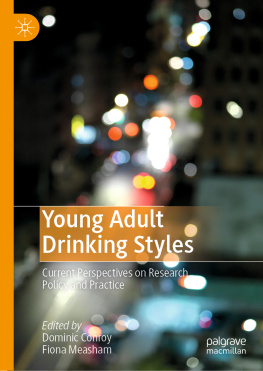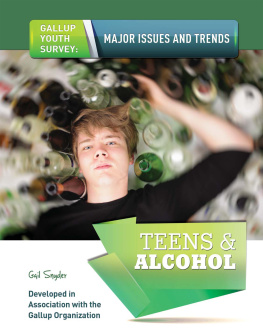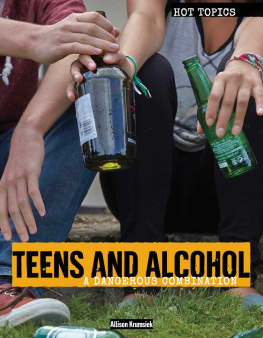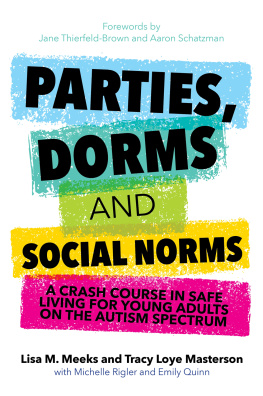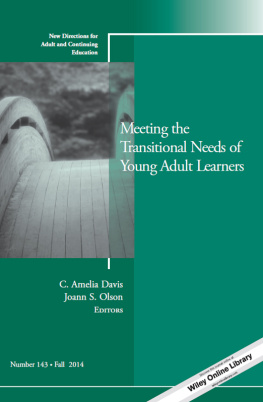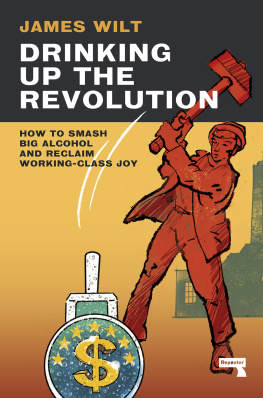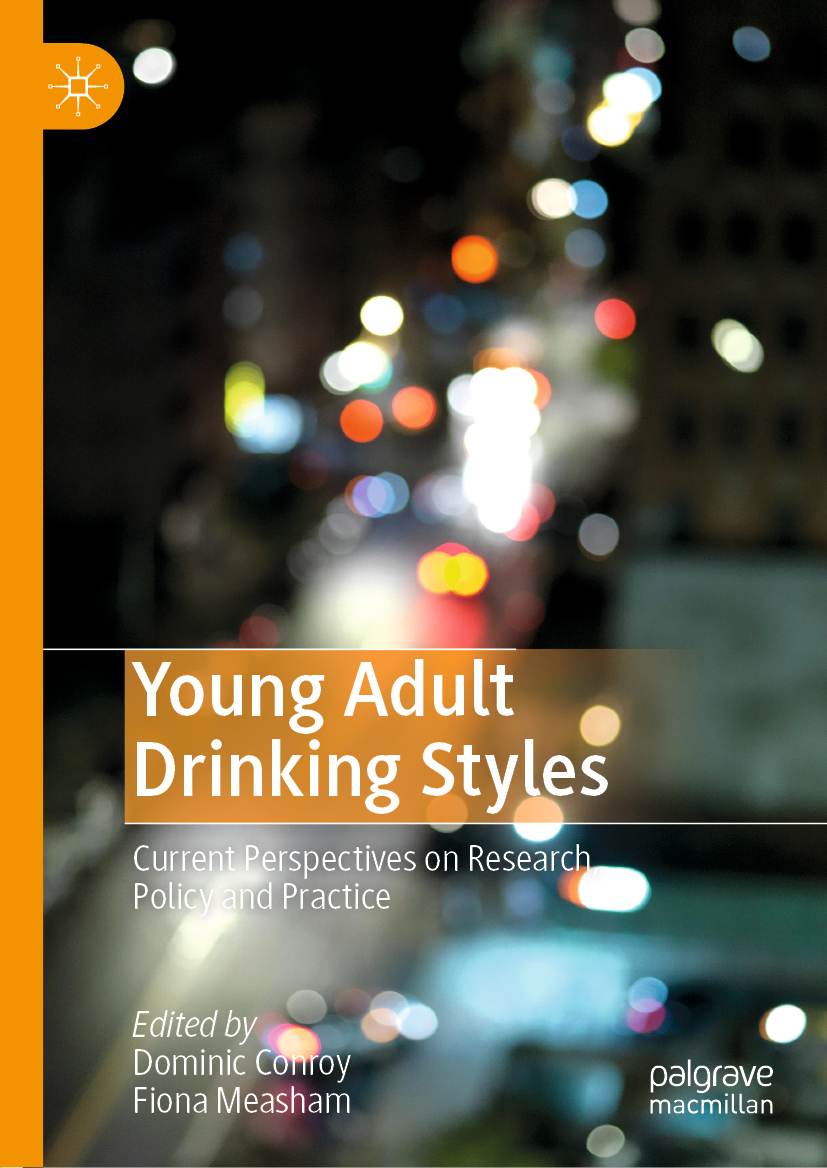Editors
Dominic Conroy
School of Psychology, University of East London, London, UK
Fiona Measham
Department of Sociology, University of Liverpool, Liverpool, UK
ISBN 978-3-030-28606-4 e-ISBN 978-3-030-28607-1
https://doi.org/10.1007/978-3-030-28607-1
The Editor(s) (if applicable) and The Author(s), under exclusive license to Springer Nature Switzerland AG 2019
This work is subject to copyright. All rights are solely and exclusively licensed by the Publisher, whether the whole or part of the material is concerned, specifically the rights of translation, reprinting, reuse of illustrations, recitation, broadcasting, reproduction on microfilms or in any other physical way, and transmission or information storage and retrieval, electronic adaptation, computer software, or by similar or dissimilar methodology now known or hereafter developed.
The use of general descriptive names, registered names, trademarks, service marks, etc. in this publication does not imply, even in the absence of a specific statement, that such names are exempt from the relevant protective laws and regulations and therefore free for general use.
The publisher, the authors and the editors are safe to assume that the advice and information in this book are believed to be true and accurate at the date of publication. Neither the publisher nor the authors or the editors give a warranty, expressed or implied, with respect to the material contained herein or for any errors or omissions that may have been made. The publisher remains neutral with regard to jurisdictional claims in published maps and institutional affiliations.
Cover illustration: Brian Buckley/Alamy Stock Photo
This Palgrave Macmillan imprint is published by the registered company Springer Nature Switzerland AG
The registered company address is: Gewerbestrasse 11, 6330 Cham, Switzerland
Preface
The phrase young adult drinking conjures up evocative images, at least until recently, of excess, anti-social behaviour and harm. More recently, the images of young adults on our screens have been of a more restrained, and indeed often strained, ilk, associated with a prioritisation of health and wellness in image and deed, plant-based diets (evident in the growing popularity of vegan products marketed at young adults) and concerns about their own future and the future of the planet, with movements like Extinction Rebellion reflecting a shift from a culture of consumption to a culture of restraint and sustainability.
At the close of the second decade of the twenty-first century, research and scholarly discussion concerning young adult alcohol use increasingly recognises the myriad ways in which alcohol can be understood and studied. Evidence now consistently points to broad demographic shifts in drinking behaviour among young adults. This is reflected in changes in expectations and stereotypes around drinking styles and behaviours among women and men and in the significant increase in the number of non-drinkers found among young adults in many developed countries. The rapid rise of social media use and mobile/smartphone technology also hold significant implications for future trends in alcohol, not just for drinkers but also for health promotion, and for alcohol industry manufacturing, marketing and retail practices.
Views on drinking behaviour and approaches to alcohol use practices among young adults continue to evolve. Accordingly, new research agendas and some evidence of movement away from a purely pathological model for thinking about drinking behaviour among young adults have occurred. This new research climate is partly reflected in the great increase in qualitative and mixed methods research and a growth in multidisciplinary collaborations involving anthropologists, epidemiologists, psychologists, criminologists and sociologists, to name but a few. This diversification of topic focus and method application in the field of alcohol research is critically important from both clinical and policy perspectives. Progressive, successful modes of promoting more moderate drinking over the life course among young adults seem likely to benefit from the real world emphasis of some contemporary alcohol research in which drinking experiences and drinking contexts are emphasised in empirical programmes.
Why should the drinking practices among individuals whom we are terming young adults (those aged approximately 1830 years old) warrant particular attention? Some authors consider that there are typical characteristics and decisions involved in this life stagee.g. relating to living arrangements; acquiring secure/meaningful employment; initiation and experimentation with illicit drugs and altered states of intoxication; engaging with choices and meanings associated with identity and sexualitythat qualitatively distinguish young adulthood from earlier or later life stages. While early phases of experimentation may be behind them, many young adults are leaving the protective influences of family and local community for university, work and cohabiting with friends and partners, and beginning to lay down particular understandings about alcohols role in their life which may form the basis for how alcohol is used (or not) for the remainder of that individuals life. Therefore, from their late teens onwards, young adults are, in many cases, presented with a relatively unfamiliar but considerable range of settings and occasions which demand decisions and action relating to alcohol use (and non-use).
How might drinking styles provide a useful shift of focus? The lexicon for describing and understanding drinking behaviours and practices, and for identifying particular types of drinkers is vast but is also culturally and historically situated. For example, we can think of drinking behaviour in terms of social drinking, moderate drinking, problem drinking, anti-social drinking, binge drinking, light drinking and the list continues. Given the constructive power of the terminology surrounding alcohol consumption in the context of young adult drinking practices, questions are raised about possible alternatives that manage to navigate a route through these hard definitions to produce a more coherent appreciation of young adult drinking practices, cultural and policy change surrounding alcohol consumption, and new trends in research. The term drinking styles, which has appeared previously on occasions in the alcohol literature, helps guide the development of theory that accounts for fluidity and inconsistency in drinking practices over time. In terms of real world advantages, the term drinking styles provides a term that recognises that drinking behaviour is chosen and re-chosen between and within events involving the potential for alcohol consumption. Put another way, to discuss an individuals (or groups) drinking styles provides a way of acknowledging the multiple factors (and therefore multiple sites) for pursuing a health promotion agenda to promote safe, sustainable drinking practices among young adults.
While there is persistent coverage of alcohol-related issues in the media, academic, policy and broader cultural settings, what is much less clearly available is a space dedicated to a consideration of the trends, nuances and contexts for young adult drinking linked with life stage transitions and identity/identities in the post-Internet world. In exploring the complexities of drinking behaviour among young adults, the contributors to this collection avoid traditional understandings of young adult drinking that pathologise and generalise. We advocate instead for an inclusive approach evident in the wide range of disciplinary backgrounds, cultural perspectives and international settings represented in this book, in order to better understand the economic, cultural and pharmacological crossroads at which we now stand.

